Advocating for free-to-read and free-to-publish science journals amid a need to change a broken evaluation system
Promovendo periódicos científicos gratuitos para leitores e escritores diante da necessidade de mudar o sistema de avaliação acadêmico
André Frainer
Abstract
Keywords
Resumo
Palavras-chave
References
Academia Brasileira de Neurologia – ABN, 2010. Classification of journals in the QUALIS System of CAPES - URGENT need of changing the criteria! Dement. Neuropsychol. 4(1), 1-3. PMid:29213653.
Becerril, A., Bosman, J., Bjørnshauge, L., Frantsvåg, J.E., Kramer, B., Langlais, P.-C., Mounier, P., Proudman, V., Redhead, C., & Torny, D., 2021. OA diamond journals study. Part 2: recommendations. Zenodo.
Bourguet, D., Rouzies, E., & Guillemaud, T., 22 dec. 2022. Could ‘Peer Community In’ be the revolution in scientific publishing we’ve all been waiting for? The Conversation. Retrieved in 2023, September 5, from
Brasil. Coordenação de Aperfeiçoamento de Pessoal de Nível Superior – CAPES, 2023. Plataforma Sucupira. Brasília. Retrieved in 2023, September 5, from
Declaration on Research Assessment – DORA, 2012. San Francisco Declaration on Research Assessment. Retrieved in 2023, September 5, from
Dufour, Q., Pontille, D., & Torny, D., 2023. Supporting diamond open access journals. Interest and feasibility of direct funding mechanisms. bioRxiv
European Commission, 2023. Article processing charges. Open Research Europe. Retrieved in 2023, September 5, from
Ferreira, R., Antoneli, F., & Briones, M., 2013. The hidden factors in impact factors: a perspective from Brazilian science. Front. Genet. 4, 130. PMid:23874351.
Hagve, M., 2020. The money behind academic publishing. Tidsskrift Den Norske Legeforening. Retrieved in 2023, September 5, from
Hatch, A., Kermer, V., Pulverer, B., Shugart, E., & Curry, S., 17 apr. 2019. Research assessment: reducing bias in the evaluation of researchers. Cambridge: eLife Sciences Publications, Ltd. Retrieved in 2023, September 5, from
Kelly, É., 2019. ‘Big deal’ publishing costs European universities over €1B a year. Science|Business. Retrieved in 2023, September 5, from
Kramer, B., & Bosman, J., 2021. OA diamond journals study: journals inventory. Genève: European Organization for Nuclear Research.
Packer, A.L., 2010. The SciELO open access: a gold way from the South. Can. J. High. Educ. 39(3), 111.
Packer, A.L., Cop, N., Luccisano, A., Ramalho, A., & Spinak, E., eds., 2014. SciELO: 15 anos de acesso aberto: um estudo analítico sobre Acesso Aberto e comunicação científica. Paris: UNESCO.
Peterson, A.T., Emmett, A., & Greenberg, M.L., 2013. Open access and the author-pays problem: assuring access for readers and authors in the global academic community. J. Libr. Sch. Commun. 1(3), 3.
Saikia, Q., 2 mar. 2023. Two new tools to support responsible research assessment: debiasing committee composition and building blocks for impact. DORA. Retrieved in 2023, September 5, from
Sanderson, K., 2023. Editors quit top neuroscience journal to protest against open-access charges. Nature 616(7958), 641. PMid:37085706.
Schmidt, R., 25 oct. 2022. Building blocks for impact. Zenodo.
Smith, A.C., Merz, L., Borden, J.B., Gulick, C.K., Kshirsagar, A.R., & Bruna, E.M., 2021. Assessing the effect of article processing charges on the geographic diversity of authors using Elsevier’s “Mirror Journal” system. Quant. Sci. Stud. 2(4), 1123-1143.
Solomon, D.J., & Björk, B.-C., 2012. A study of open access journals using article processing charges. J. Am. Soc. Inf. Sci. Technol. 63(8), 1485-1495.
Vessuri, H., Guédon, J.-C., & Cetto, A.M., 2014. Excellence or quality? Impact of the current competition regime on science and scientific publishing in Latin America and its implications for development. Curr. Sociol. 62(5), 647-665.
Widener, A., 8 feb. 2019. Societies and scientists react to open access Plan S. Chemical & Engineering News. Retrieved in 2023, September 5, from
Submitted date:
09/05/2023
Accepted date:
10/25/2023
Publication date:
12/01/2023

